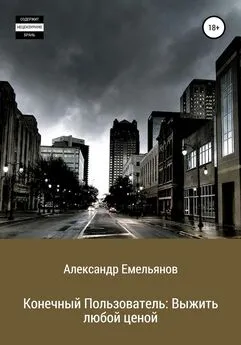Пользователь - o 3b3e7475144cf77c
- Название:o 3b3e7475144cf77c
- Автор:
- Жанр:
- Издательство:неизвестно
- Год:неизвестен
- ISBN:нет данных
- Рейтинг:
- Избранное:Добавить в избранное
-
Отзывы:
-
Ваша оценка:
Пользователь - o 3b3e7475144cf77c краткое содержание
o 3b3e7475144cf77c - читать онлайн бесплатно полную версию (весь текст целиком)
Интервал:
Закладка:
bout of inflation. The government was incompetent, also very costly to deal with; that, of
course, was a money-man's polite way of intimating that it was corrupt and that he was
helping to keep it so. Elections were scheduled for the end of the summer, and there would be
a bitter campaign; sooner or later the various factions would fall to fighting, and that wouldn't
help the financial situation any. Johannes was trimming his sails and getting ready for rough
weather. He was taking some of his investments out of the country. Those he kept in Germany
were mostly in industries which produced goods for export.
Lanny made a brief report upon the younger Robins, and the present condition of their
political diseases. Fate had played a strange prank upon the business association known as
"Robin and Robbie." The Robin half had got somewhat the worst of it, having two Reds and two
Pinks, whereas Robbie had only one Red and one Pink, and didn't see either very often. The
Robin half was considerate and never referred to the fact that the infection had come from
the Robbie side. Johannes knew how his associate hated and despised Jesse Blackless, the man
who had talked revolution to Lanny, and then to Hansi and Freddi, seducing these sensitive,
idealistic minds away from their fathers.
Robbie wanted to know about Irma, and how she and Lanny were making out. Very
important, that; the father had found out last October what a convenient thing it was to have
the Barnes fortune back of you. He hoped that Lanny wasn't going to fail to make a success of it.
Lanny reported that he and Irma were getting along as well as most young couples he had
known; better than some. Irma wanted a lot, and most of the things he was interested in didn't
mean much to her, but they were in love with each other, and they found the baby a source of
satisfaction. Robbie said you never got everything you wanted out of a marriage, but you could
put up with a lot when it included a thumping big fortune. Lanny knew that wasn't the noblest
view to take of the holy bonds of matrimony, but all he said was: "Don't worry. We'll make
out."
III
One of Robbie's purposes was to see Zaharoff. The New England-Arabian Oil Company had
managed to survive the panic, but Robbie and his associates at home needed cash and must
find a buyer for their shares. Doubtless the old spider knew all about their plight, but Robbie
would put up a bold front. As usual, he asked if his son would like to go along, and as usual the
son "wouldn't have missed it for anything. He had never given up the hope that somehow he
might be able to help his father in his dealings with the retired munitions king of Europe.
Robbie phoned the old man's home, and learned that he was at his country estate, the
Chateau de Balincourt in Seine-et-Oise, close to Paris. Robbie sent a telegram, and received an
appointment for the next afternoon; he ordered a car through the hotel, and they were
motored to the place, which had once belonged to King Leopold of Belgium. Now there was a
new kind of kings in Europe, and one of them was this ex-fireman of Constantinople. A lodge-
keeper swung back the gates for them, and they rolled down a tree-lined drive and were
received at the door by an East Indian servant in native costume. All the servants were Hindus;
an aged king wanted silence and secrecy, and one way was to have attend ants who understood
only a few simple commands. One of Zaharoff's married daughters lived with him, and no one
came save by appointment.
The visitors were escorted into a drawing-room decorated in the lavish French fashion. On
the walls were paintings, and Lanny had been invited to see them, so now he took the
occasion. But it didn't last long, for the owner came in. His heavy shoulders seemed a bit more
bowed than when Lanny had watched him, in his undershirt, burning his private papers in the
drawing-room of his Paris house and setting fire to the chimney in the process. Now he wore
an embroidered purple smoking-jacket, and his white mustache and imperial were neatly
trimmed. He had become almost entirely bald.
"Eh, bien, mon garçon?" he said to Lanny.
Being at the beginning of his thirties, Lanny felt quite grown up, but understood that this
might not impress one who was at the beginning of his eighties. "I was looking at your
paintings," he remarked. "You have a fine Ingres."
"Yes; but I have looked at it for so many years."
"Paintings should be like old friends, Sir Basil."
"Most of my old friends are gone, and the younger ones are busy with their affairs. They tell
me you have been making your fortune."
It was an allusion to Irma, and not exactly a delicate one; but Lanny knew that this old man
was money-conscious. The duquesa, his companion, had tried tactfully to cure him of the defect,
but without succeeding. Lanny was not surprised when Zaharoff added: "You will no longer have
to be a picture-dealer, hein?"
He smiled and answered: "I get a lot of fun out of it."
The old man's remark was noted by Robbie, who had said on the way out that if Zaharoff knew
that Lanny had the Barnes fortune behind him, he might expect to pay a higher price for the
shares of the New England-Arabian Oil Company!
They seated themselves, and tea was served; for Robbie it was scotch and soda. The two men
discussed the state of business in Europe and America, and Lanny listened attentively, as he
had always done. One who found pleasure in buying and selling old masters could learn from
the technique being here revealed. The Knight Commander of the Bath of England and Grand
Officer of the Legion d'Honneur of France was the very soul of courtesy, of suavity in manner; a
bit deprecating, as if he were saying: "I am a very old man, and it would not be fair to take
advantage of me." His soft voice caressed you and his smile wooed you, but at the same time
his blue eyes watched you warily.
He was known as "the mystery man of Europe," and doubtless there had been mysteries
enough about what he was doing in the political and financial worlds; but so far as his character
was concerned, Lanny no longer found any mystery. An aged plutocrat had fought his way
up in the world by many deeds of which he now did not enjoy the contemplation. He had
intrigued and threatened, bribed and cajoled, made promises and broken them; by tire less
scheming and pushing he had acquired the mastery of those great establishments which the
various countries of Europe needed in order to wage their wars of power. But all the time he
had remained in his soul a Greek peasant living among cruel oppressing Turks. He had been
afraid of a thousand things: of his own memories, of the men he had thwarted and ruined, of
slanderers, blackmailers, assassins, Reds—and, above all, of what he had helped to make
Europe. A man who wanted to sell munitions, who wanted all the nations of the earth to spend
their incomes upon munitions, but who didn't want any munitions shot off—at least not
anywhere within his own hearing! Unaccountably the shooting continued, Europe seemed to be
going from bad to worse, and Zaharoff's conversation revealed that he trusted nobody in power
and had very little hope of anything.
A bitter, sad old man, he felt his powers waning, and had hidden himself away from dangers.
He would soon be gone; and did he worry about where he was going? Or was it about what was
going to become of his possessions? He mourned his beloved Spanish duquesa of the many
names. Did he contemplate the possibility of being reunited to her? Lanny had something to say
to him on that subject, but must wait until the two traders had got through with their duel of
wits.
IV
It was Robbie Budd who had sought this interview, and he who would have to say what he had
come for. Zaharoff, while waiting, would be gravely interested in what Robbie had to tell about
the state of Wall Street and the great American financial world. The visitor was optimistic, sure
that the clouds would soon blow over. Lanny knew that his father really believed that, but
would Zaharoff believe that he believed it? No, the Greek would think that Robbie, having
something to sell, was playing the optimist. Zaharoff, the prospective buyer, was a pessimist.
At last Robbie saw fit to get down to business. He explained that his father was very old, and
the cares of the Budd enterprise might soon be on Robbie's shoulders. Budd's was largely out
of munitions; it was making everything from needles to freight elevators. Robbie would no longer
be in a position to travel—in short, he and his friends were looking for someone to take the New
England-Arabian shares off their hands at a reasonable figure.
There it was; and Zaharoff's pessimism assumed the hues of the nethermost stage of Dante's
inferno. The world was in a most horrible state; the Arabians were on the point of declaring a
jihad and wiping out every European on their vast desolate hot peninsula; Zaharoff himself
was a feeble old man, his doctors had given him final warning, he must avoid every sort of
responsibility and strain —in short, he couldn't buy anything, and didn't have the cash
anyhow.
A flat turn-down; but Lanny had heard a Levantine trader talk, and knew that Zaharoff's real
purpose and desire would not be revealed until the last minute, when his two guests had their
hats in their hands, perhaps when they were outside the front door. Meanwhile they mustn't
show that they knew this; they mustn't betray disappointment; they must go on chatting, as if
it didn't really mean very much to them, as if Robbie Budd had crossed the ocean to have one
more look at Zaharoff's blue eyes, or perhaps at his very fine Ingres.
It was time for Lanny to mention the paintings, which he had been invited to inspect. He
asked if he might stroll about the room, and the Knight Commander and Grand Officer rose
from his seat and strolled with him, pointing out various details. Lanny said: "You know I am
interested in the value of paintings, that being my business." The remark gave no offense; quite
the contrary. The old man told the prices, which he had at his fingertips: a hundred thousand
francs for this Fragonard, a hundred and fifty thousand for that David. "Before-the-war
francs," he added.
They went into the great library, a magnificent room with a balcony all around it, having
heavy bronze railings. Then they inspected the dining-room, in which was a startling Goya, the
portrait of an abnormally tall and thin Spanish gentleman wearing brilliant-colored silks with
much lace and jewelry. "An ancestor of my wife," remarked the old man. "She didn't care for
it much; she found it cynical."
An opening which Lanny had been waiting for. "By the way, Sir Basil, here is something
which might interest you. Have you ever tried any experiments with mediums?"
"Spiritualist mediums, you mean? Why do you ask?"
"Because of something" strange which has been happening in our family. My stepfather
interested my mother in the subject, and in New York they found a Polish woman with whom
they held seances, and she gave them such convincing results that we brought her to the Riviera
with us, and she has become a sort of member of our family."
Читать дальшеИнтервал:
Закладка:




